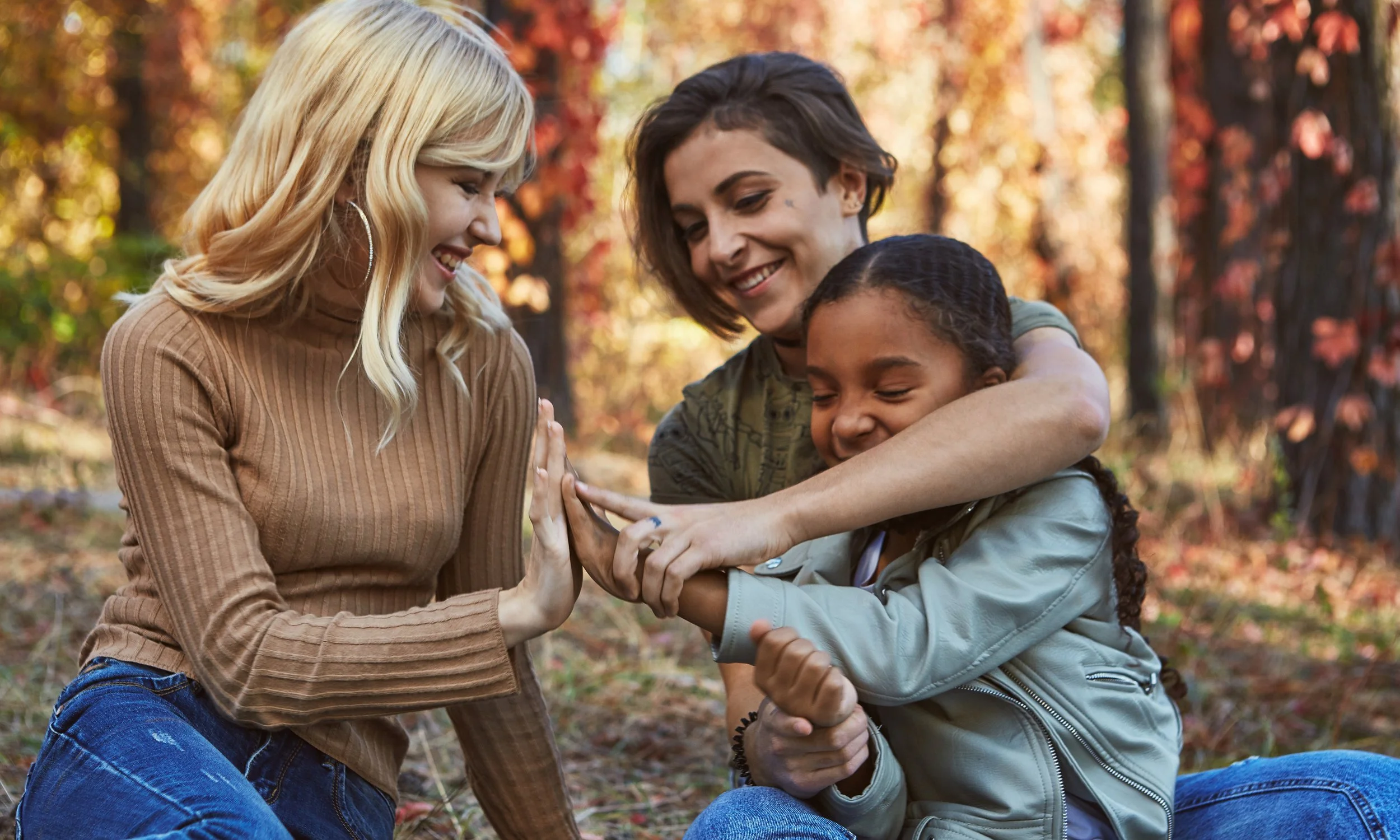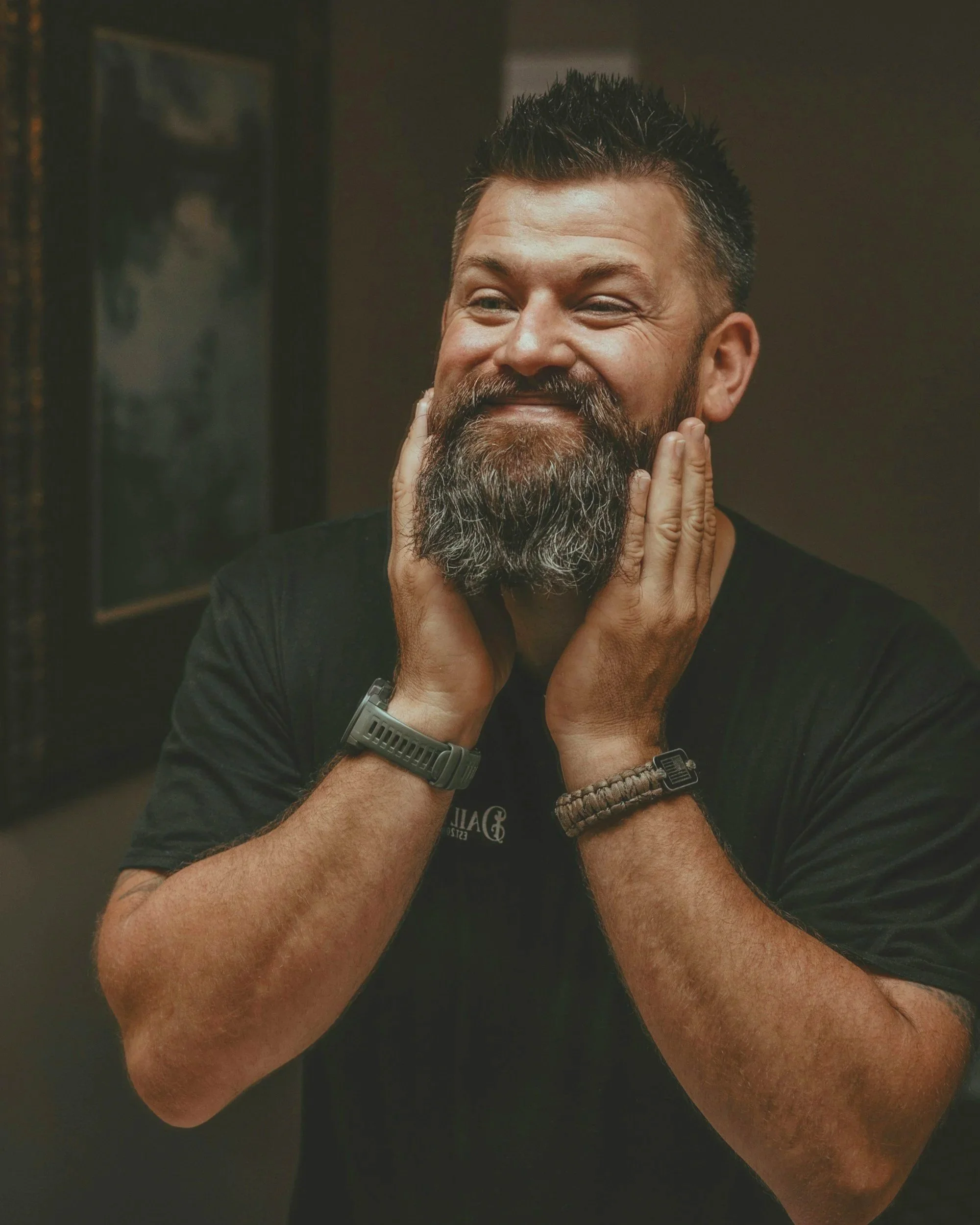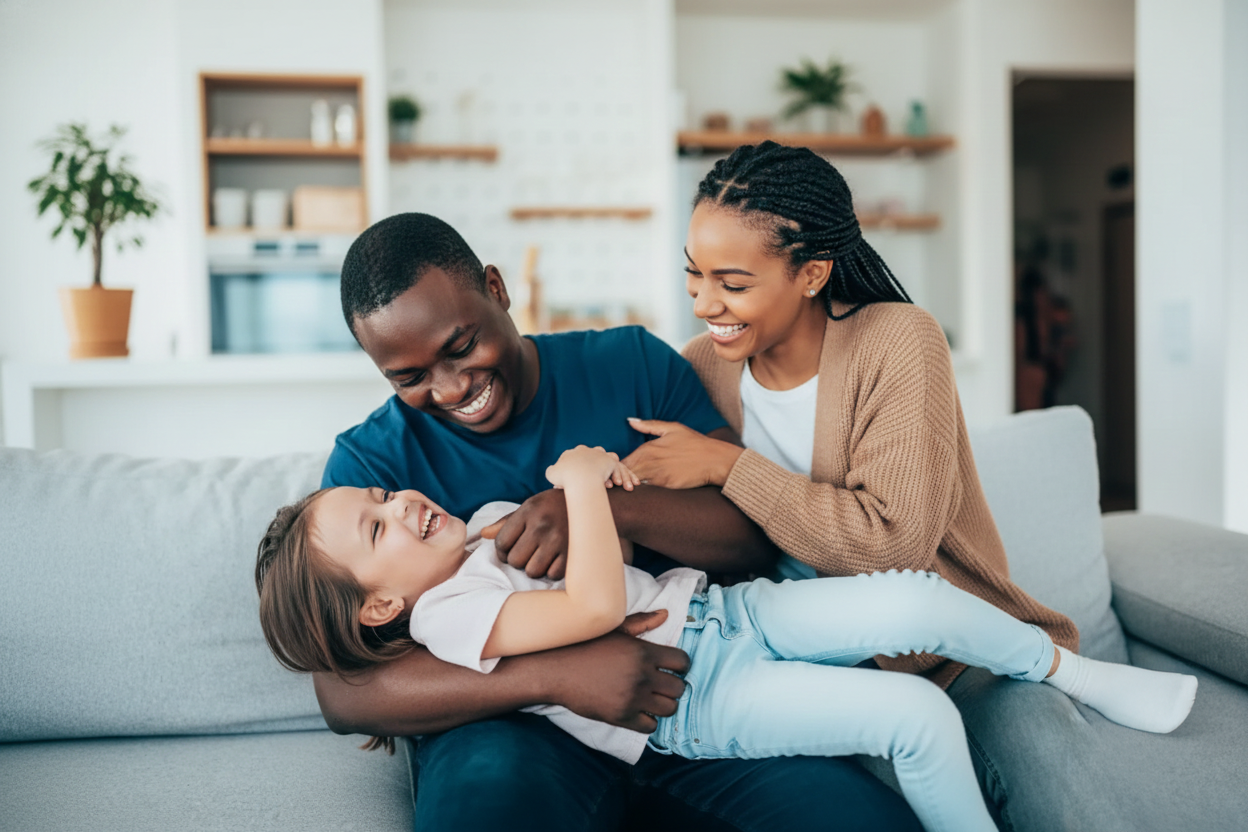
Adoption Therapy in Irvine: Specialized Support for Parents and Adoptees
Translating the hidden language of the adoption experience
Navigating the adoption story — at any stage.
You’re starting to realize it—you might actually need therapy.
Maybe you’ve thought about it before—casually, like something you’d "talk to someone about someday." But today, something feels different. You’re tired. Whether you are the one trying to provide a stable home or the one trying to find your place within it, there is an exhaustion that comes from pretending everything is fine.
Adoption is often wrapped in a narrative of gratitude, but the day-to-day reality is much more complicated.
For the Adoptive Parent: Speaking a language your child can't hear
You can have a home filled with love, stability, and the best intentions, and still feel a persistent gap in the connection. This usually looks like "difficult" behaviors that don't make sense:
Defiance & Control: Sudden defiance over small things or an intense need for control that doesn't respond to traditional discipline.
Emotional Shut-downs: Quiet or intense shut-downs that can last for hours.
The "Book" Barrier: You’re doing everything the books said to do, but it feels like love alone hasn't been the "fix" you were promised.
For the Adult Adoptee: The hollow feeling of the "Performance"
That same struggle follows you long after you’ve left your parents' home, dictating your relationships and your career:
The "Perfect" Employee or Friend: Being the one who never pushes back or is always "fine" because you’re terrified that being high-maintenance will lead to being left.
Romantic Relationship Cycles: An exhausting rhythm of either clinging too tight or pulling away before anyone else can.
The Master Adapter: You’ve become a master at reading the room and adapting your personality to fit what others need, yet you’re left with the feeling that if you stopped performing, no one would want who was left.
Understanding the "Hidden Language"
This is the core of the adoption struggle: a parent who is trying desperately to reach their child, and an adoptee who doesn't know how to be reached. It’s okay to admit that you need a different way to find your way back to each other.
To bridge that gap, we have to look past the surface and understand the hidden language you are both trying to speak.
Learning the Hidden Language of Survival
Adoption is often wrapped in a story of "Gratefulness," but that script usually gets in the way of the truth. Underneath the story is a hidden language that most families aren't taught how to read—a language where the "effortless" connection you see in other families feels like a goal you're constantly failing to reach.
The Ice Cream Freeze This language shows up in the smallest moments. A common example is when a parent asks a simple question like, “What flavor ice cream do you want?” and the answer is a shrug or a blank stare. As a parent the frustration over such a simple decision can be too much to handle after a long day. Why can’t this kid make a decision?
It isn't indecision; it’s a survival response.
The Chameleon: As an adoptee you’ve spent your life reflecting back what others need to see just to stay safe and accepted. You don't answer because you honestly don't know; your own "self" has stayed buried under the performance.
The Engine: Whether a child is "the good kid" or the one "lashing out," they are running on this same engine of survival. One stays safe by being invisible; the other stays safe by pushing away. Both are exhausted and working so hard.
The Translation Gap The tragedy is that most parents try to translate these moments using traditional parenting. You apply consequences, rewards, or logic to "fix" the behavior.
But those tools were designed for a child who already feels rooted. When you apply traditional discipline to a survival response, it doesn't help you reach them—it actually makes them harder to reach. It forces the child to chameleon even harder, leaving the parent feeling powerless and the adoptee feeling invisible.
Here’s What Changes in Adoption Therapy
In adoption therapy, we stop focusing on individual behaviors and start addressing the relational bond. Whether you are a parent or an adult adoptee, the answer isn't about "fixing"—it’s about changing the safety of the relationship itself.
The Shift: From Survival to Felt-Security
When an adoptee feels a deep, internal sense of felt-safety, everything starts to change. We work to create a connection where the "Ice Cream Freeze" and the "Hidden Questions" are no longer threats to the relationship.
The Goal: Moving away from traditional parenting and discipline, which often reinforces the exact behavior you are trying to change.
The Focus: We don’t just change the behavior; you grow your relationship.
The Dynamic: We aren't always talking about the past; we are changing how you respond to one another right now.
The Experience: Changing the "Room"
Instead of parents feeling like you are hitting a wall and adoptees feeling like you are hiding behind one, we build a new way of being together.
For Parents: You can finally reach your child in the meaningful way you’ve always wanted.
For Adoptees: You can finally feel the deep, meaningful connection and safety your entire body thirsts for.
The Result: Clearing the Way
We are building the kind of security that allows the wonderful family you already are to finally show up. We move toward a connection that makes everyone feel better.
The Right Adoption Therapist Matters
You've already done the hardest part, you've admitted that something needs to change. That the strategies aren't working. That love alone hasn't been enough to close the gap you feel every single day.
You don't need another article explaining what's wrong. You don't need to try harder at the same things that still haven’t worked. What you need is someone who can sit in the room with you and help you build something entirely different—a way of connecting that was actually designed for the reality you're living.
This work isn't about fixing anyone. It's about creating the kind of felt-safety where both parents, adoptees and anyone who loves them actually reach each other.
The gap you're feeling right now? It doesn't have to be permanent. But it also won't close on its own. It needs a different kind of attention—the kind that understands the hidden language you've been speaking all along.
You've already survived the hardest parts. Now it's time to start actually connecting. Let's do this work together.
Hi, I’m Karl
Your Adoption Therapist in Irvine, CA
I help adoptees, adoptive parents, and birth families who are ready to understand how adoption has shaped their lives. Not just the good parts, but the confusing ones too—the parts that feel tangled in love, loss, loyalty, and “shouldn’t this feel different?”
Adoptees come to me when they’re tired of holding it all in or trying to make sense of what it means to be adopted. Parents come to me when they see that their child is needing something different, but they aren’t sure what to change.
It's Professional, and It's Personal I’ve been doing this work for over 15 years, but for me, it’s not just a job. I’m an adoptee. I’m a sibling to an adoptee. I’ve searched for and found my biological family. I’ve lived these questions, sat in that ache, and experienced the complicated beauty of reconnecting with pieces of myself I didn’t know were missing. My Master of Arts in Adoption Studies in addition to my MFT gives me a solid clinical foundation, but my life has given me the map.
My clients often tell me they feel more like themselves. Their relationships improve. Their children are feeling more secure and thriving. They understand where their reactions come from. They feel seen—not just by me, but by themselves.
If any of this resonates, I’d be honored to walk through this with you.
Frequently Asked Questions about Adoption Therapy in Irvine
-
There’s no single “best” therapy for adoption trauma. What works best depends on each person’s unique story, needs, and pace. That said, certain approaches are especially effective in helping adoptees, adoptive parents, and birth families process the complex mix of loss, identity, and attachment wounds that can come with adoption.
Often my work is based in education of the impact of adoption and how it plays out in families and relationships. Parenting is also a key part of my work. Because parenting an adopted child is different.
-
Adoption therapy is a blend of therapeutic approaches designed to address the specific needs of individuals and families touched by adoption —adoptees, adoptive parents and families, and birth families—at any stage of the journey. It’s a space to explore the unique layers of adoption, including identity, belonging, grief, loss, and relationship dynamics.
Adoption therapy is often done with the adoptive parents. Helping them learn how to best help their children.
-
Yes, it’s possible. Adoption inherently involves separation, loss, or disruption in caregiving—all of which can affect how the brain and body process safety and trust. These early experiences can lead to symptoms similar to Post-Traumatic Stress Disorder (PTSD), such as anxiety, hypervigilance, emotional numbness, or difficulty in relationships.
Lesser known is the fact that adoptive parents, adoptive siblings and birth families can also suffer PTSD and similar symptoms due to their adoption experience.
In adoption therapy, we look at how these experiences may still be affecting you today and use approaches like Brainspotting, EFT (Emotionally Focused Therapy) and attachment-based therapy to help process and heal those wounds. The goal isn’t just to reduce symptoms, but to create a deeper sense of safety, connection, and self-understanding.
Ready to start the conversation?
I know it can feel like a big step to call a counselor, but I’ll make it easy.
We’ll spend 15-minutes on the phone and I’ll let you know how or if I can help. If I am not the right person, I’ll do my best to get you to the right person.
Discover how therapy grounded in lived experience can help you feel more whole, connected, and at ease.
Adoption Therapy in Irvine & Online
My office is located near the Irvine Spectrum, providing a quiet, professional space for in-person sessions. I serve clients throughout Orange County, including Newport Beach, Laguna Hills, and Lake Forest.
Karl Stenske Therapy 15615 Alton Pkwy, Suite 450 Irvine, CA 92618
Phone & Text: (949) 922-0734





